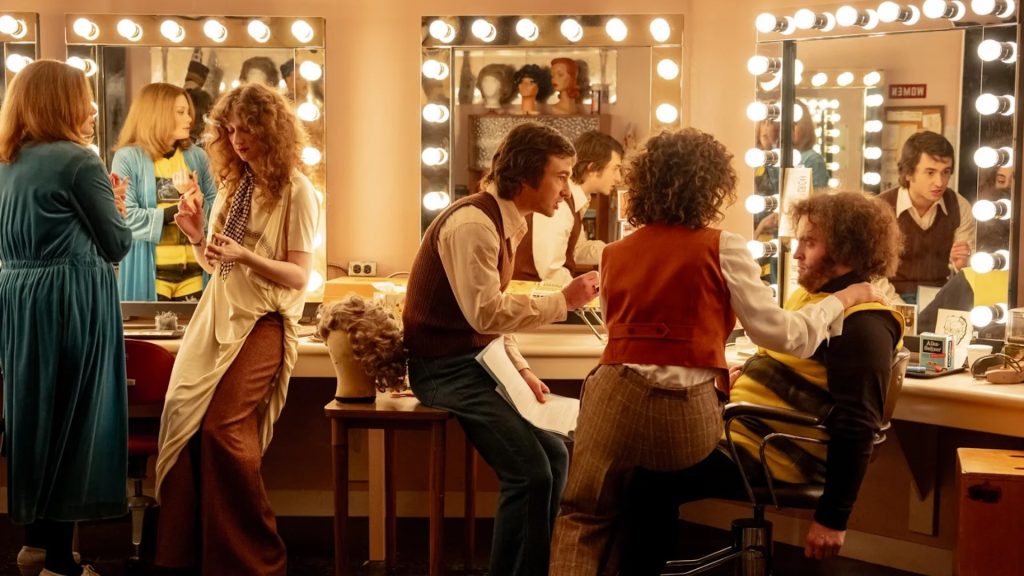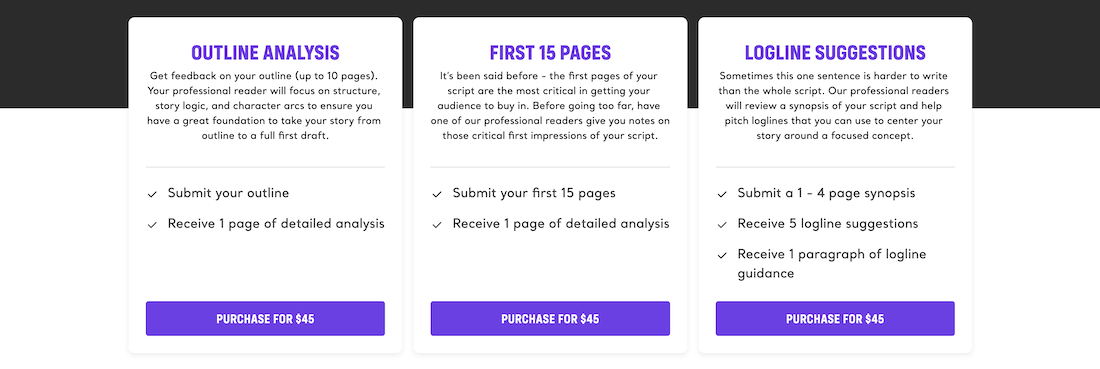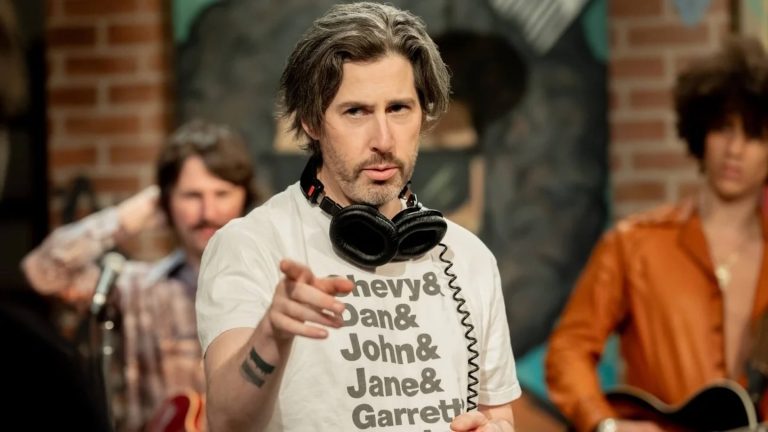7 Most Common Notes Readers Give

The best way to win over a script reader is to know what they’re looking for. Yes, you might’ve written multiple scripts and read all the screenwriting gurus, but many times, readers are giving the same notes over and over again. Professional readers work in the industry and at all different levels, reading stacks of scripts every week. So when you receive notes from them, remember that they know what you’re up against and they want you to blow them away with a spectacular script.
If you’re getting the same scores over and over again, it’s helpful to know what readers are bumping on so often to avoid the pitfalls yourself as you’re writing.
Lean Into Your Genre
If you are writing a science fiction story, it should have science fiction set pieces, right? Or an action film should have big action set pieces. That’s the easy part. So often, writers know to have the big set-piece moments, but they forget to really dig into the smaller moments.
Things like the tone of your prose, style of dialogue, and the world, all contribute to how much you lean into your genre. This is the area where the reader relaxes and just enjoys your script. So if you’re getting a note to lean into your genre more, you likely have a strong script that could use some finessing to really make it stand out from other scripts in your genre.
Read More: 101 Genre-Blend Story Prompts
What Is Your Goal?
Does your character have a clear decision that drives them through all of Act Two? So often, writers include what the character wants from the very start of the script, and then use the catalyst moment or “inciting incident” to send the protagonist off towards the thing we already know they want.
But that’s not a strong goal. We don’t want the choice to go after a goal to be easy. The protagonist has to be pushed to make the tough choice.
Think of Star Wars: A New Hope. We know Luke wants to go and be a pilot with his friends. But when Obi-Wan Kenobi offers him the chance to go on an adventure, he doesn’t immediately say yes, even though this inciting incident (discovering the message from Princess Leia) hits on his personal wants to leave.
It’s not until he loses his aunt and uncle, and essentially has no other choice, that he goes off with his new mentor. Luke wants an adventure, he needs to learn more about the world around him (he’s very naive), and his goal to get the message to the Rebels will do both of those things.
Pacing
If your goal isn’t clear, then your second act will likely meander. Writers often fill the space with dialogue, trying to find the answer or explain what’s going on in a character’s mind, rather than letting the audience learn things through their characters’ actions.
It’s very important to balance the amount of dialogue and action. Too much of one will cause readers to scan and miss things—unless what you’re putting in there still moves the plot or is unique enough to hold a reader’s attention.
For great action-heavy scripts, look at the film Children of Men, which is very active and constantly tense. The script wisely has pockets of calm between sequences where the characters discuss lighter topics, like what to name a character’s unborn baby, giving the audience a reprieve from all the action while also showing us how the characters are growing closer together.
For dialogue-heavy scripts, you can read projects by Aaron Sorkin and Amy Sherman-Palladino. Keep in mind that those scripts are significantly longer and have a voice specific to those writers that not many scribes get permission to do early on in their careers.
Another option that might be more tangible is When Harry Met Sally..., which has two people often talking about nothing seemingly of importance in various settings. By changing settings and giving them different activities to do while they talk (like watching a movie and commenting on it), the characters and audience get to know each other while revealing their feelings more in how they’re speaking and reacting to each other rather than what they’re exactly saying.
Read More: 5 Layers of Amazing Screenplay Pacing

'When Harry Met Sally' (1989)
There’s No Plot
You sometimes see this in big movie reviews too and wonder, "What do they even mean? There was so much happening in that film!" A “lack of plot” means that you’re introducing a lot of things but they’re not tying together or impacting each other.
A great exercise to ask yourself as you’re looking over your scenes comes from the creators of South Park, Trey Parker and Matt Stone, called “but/therefore.” Essentially, look through your scenes and describe the core actions that happen from one to the next. Between each one you should be able to say either “but” or “therefore.”
For example, in the recently released film Saturday Night, the main character Lorne Michael is trying to produce the first episode of Saturday Night Live (before it had officially gained that title). In one scene, the lights fall and crash in the middle of rehearsal, so Lorne gets into a fight with his lighting director, causing him to quit. THEREFORE, they have to find a new lighting director.
BUT the only one available is working on another very famous show. THEREFORE Lorne has to win him over, BUT… and on and on… By looking at your story this way, your script will have a clear line of action that keeps the story moving and the characters fighting their way through setbacks.
What Are the Stakes?
So you have your character’s goal and your plot is moving. But what will happen if your character doesn’t get what they’re going after?
As your story moves, you want to be constantly raising the stakes so that the audience knows why the character can’t turn around and go home. It should be grounded in the emotional journey they’re on, so if the character is obsessed with being perfect, the worst thing would be for everyone to know what a mess they are.
But how do you show that physically? How do you establish through their actions why it’s so much more important to them than it is to the average person?
In addition to the internal emotional stakes, there should be tangible ones as well. Could they lose money, relationships, a job they love, etc.? You can continue to put pressure on them with finances (is there a specific amount of money they need to get?) and time (get the goal by X day/time or else). The more pressure placed on your characters, the more invested your reader/audience will be.
How Do They Change?
If you’re hearing that your script doesn’t have a strong enough goal, there’s a chance that you’ll also hear them ask how or why your protagonist changes over your script. They don’t have to change for the better, but storytelling is all about taking your character on a journey for them to go through some kind of transformation, big or small.
So if you’re getting a question about your protagonist, look at whether or not your goal is strong enough and how your script moves through the plot. Every time you hit a “therefore” in your scenes (going back to the “plot” question), that’s a setback for your character, and how they overcome it will tell the reader how they’re changing or growing.
One thing to note is that you might have a character who is “passive.” These protagonists might be the hardest to write because they don’t want to be active in a story. You have to push them to take action, don’t give them the choice by showing us what they’re up against and what’s at stake, with a clear goal.
The movie Saturday Night is a good version of this in that Lorne Michaels (the character) essentially spends most of the script avoiding his problems, not making decisions, which is what it takes to run a show.

'Saturday Night' (2024)
What Is Your Theme?
Whatever your theme is will tie directly into how your protagonist changes over the course of the script. It’s the lesson they need to learn and that the audience needs to learn alongside them. So even if your protagonist doesn’t make the choice to be a “better person” in the end, there’s a reason, and that’s part of the lesson too.
Without giving away the story, the movie The Conversation starring Gene Hackman is a fantastic example of a story with an “antihero” (arguably passive) who learns a lesson but maybe doesn’t make the choice the audience wants. But for most films, the theme will ask the protagonist a central thematic question, such as "What does it mean to be a leader? What do you believe in?"
And going through the plot/journey they will come out the other side with a different answer than what they believed in the beginning.
The thing about all or most of these questions is that they all tie together. If you’re getting notes about tiny moments, it’s a really good sign that you’re close to the finish line! But most of the time, readers can look at a script and see an overarching issue.
If one of these questions is asked, solving it will ripple through many of the others. And the more that you look at these big areas of your script and see how they tie together, the more cohesive and enjoyable your final script will be.
Check out our Preparation Notes so you start your story off on the right track!

Get Our Screenwriting Newsletter!
Get weekly writing inspiration delivered to your inbox - including industry news, popular articles, and more!



























